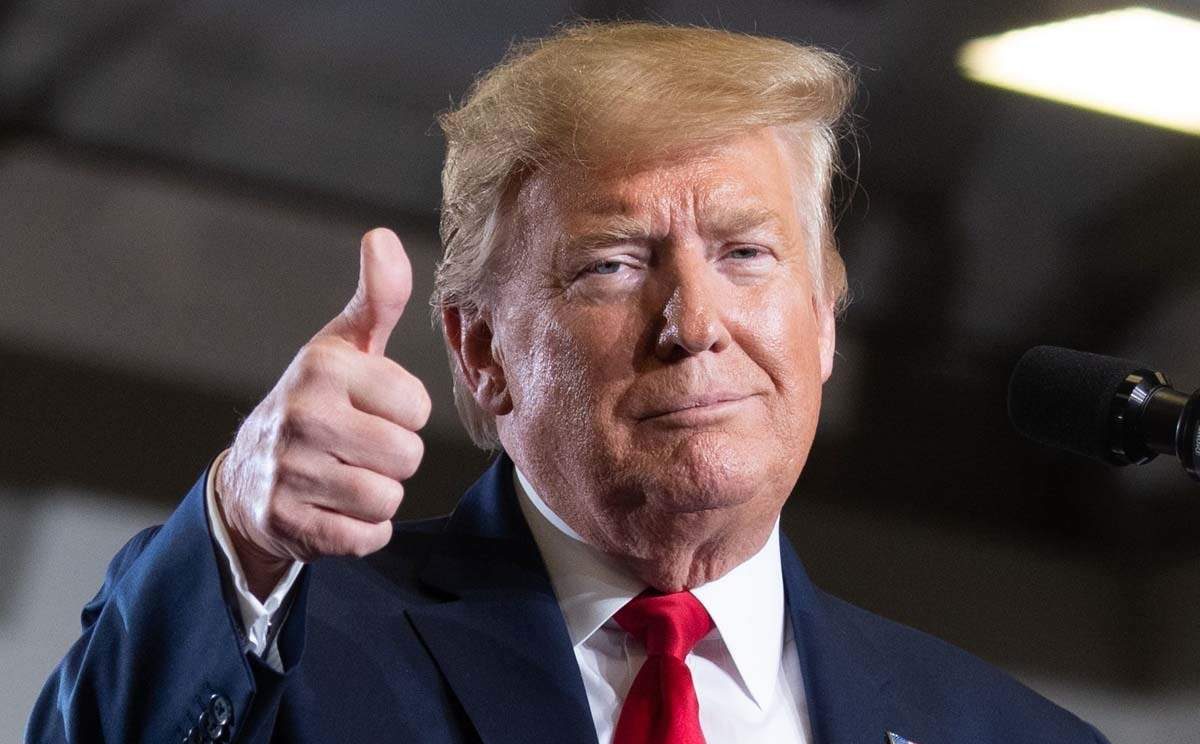Experts Question Trump’s Tariff Move: Temporary Relief or Deeper Uncertainty?
11.04.2025 18:00 1 min. read Alexander Stefanov
Global markets were shaken after President Trump unexpectedly announced a temporary freeze on U.S. trade tariffs, slashing rates to 10% for the next 90 days.
The move, posted directly on X, is part of what the administration describes as a recalibration of trade strategy, though the specifics remain murky.
Negotiations with international partners—including Canada and Mexico—will continue behind closed doors during the freeze. The abrupt shift left analysts questioning the stability of U.S. trade policy, with some calling it a short-term political maneuver rather than a lasting economic solution.
Market watchers were quick to note cautious investor behavior, pointing to thin trading volumes and mixed reactions. Some, like Chris Stadele, warned that the pause changes little for companies facing long-term uncertainty. Others, such as Amarjit Sahota, described the announcement as reactive and lacking strategic clarity.
Despite the tariff rollback, the underlying tension hasn’t eased. Economist Nouriel Roubini dismissed the idea that the Federal Reserve would intervene in response, suggesting the central bank is unlikely to accommodate erratic trade moves with rate cuts. As he put it, monetary policy won’t be used to cushion political gambles.
The clock now ticks toward a three-month deadline, with businesses and markets left to navigate the unknown.
-
1
Jamie Dimon Warns U.S. Risks Losing Dollar Dominance Without Swift Reform
02.06.2025 8:00 1 min. read -
2
Elon Musk Says Congress Is Bankrupting America
04.06.2025 14:00 2 min. read -
3
Trillions in Debt Payments Could Break U.S. Economy, Ray Dalio Predicts
06.06.2025 12:00 1 min. read -
4
Trump Defends Tariffs as Legal Battles and Global Trade Talks Escalate
03.06.2025 21:00 2 min. read -
5
Wall Street Veteran Warns Tariffs Could Disrupt AI-Driven Market Rally
05.06.2025 12:00 1 min. read
Trump Targets Fed Over Missed Rate Cut Opportunity
The fallout from the Federal Reserve’s latest decision to hold interest rates steady has reached the political arena, with U.S. President Donald Trump launching a fierce attack on Chair Jerome Powell.
Fed’s New Projections Hint at a Slower Easing Cycle Through 2026
The Federal Reserve left its target range at 4.25–4.50 percent for a fourth straight meeting and quietly dialed back how much easing it expects through 2026.
UK Inflation Stalls at 3.4%, Spotlight Shifts to BoE’s August Meeting
Britain’s cost-of-living pulse barely budged in May, with headline CPI stuck at 3.4%—the same pace (after correction) seen in April, the Office for National Statistics said on Wednesday.
Fed Holds Fire on Rates, Signals Cuts Could Arrive if Jobs Falter
After wrapping up a two-day policy meeting, the Federal Reserve left its benchmark rate unchanged near 4.4 percent—exactly what markets had penciled in.
-
1
Jamie Dimon Warns U.S. Risks Losing Dollar Dominance Without Swift Reform
02.06.2025 8:00 1 min. read -
2
Elon Musk Says Congress Is Bankrupting America
04.06.2025 14:00 2 min. read -
3
Trillions in Debt Payments Could Break U.S. Economy, Ray Dalio Predicts
06.06.2025 12:00 1 min. read -
4
Trump Defends Tariffs as Legal Battles and Global Trade Talks Escalate
03.06.2025 21:00 2 min. read -
5
Wall Street Veteran Warns Tariffs Could Disrupt AI-Driven Market Rally
05.06.2025 12:00 1 min. read


